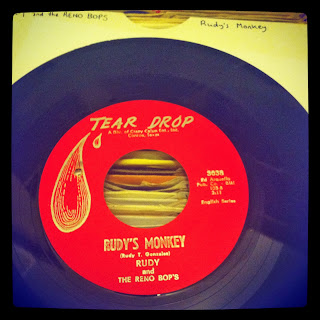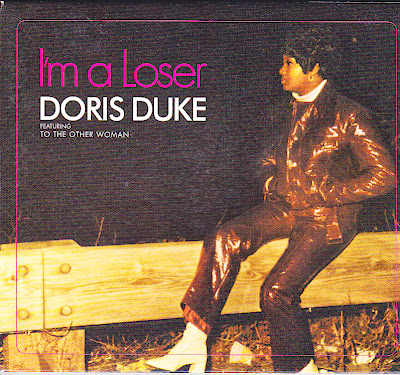This needs to begin with an admission. I, for want of a
better word, was a Five Thirty groupie. From their first single for East-West in
1990 I followed them all over the south of England clocking up 24 gigs in little
over eighteen months and kept every press cutting I could find. I was totally
smitten. Two years later they had imploded but for that brief period they were untouchable.
Their solitary album Bed,
released in the summer of ‘91, is now reissued as an expanded edition double CD
containing the original album, all the tracks from their five EPs, a BBC Radio
1 session, and – pick me off the floor – six tracks recorded as demos for a
never to be completed second album, Another
Fresh Corpse.
Formed in Oxford by Tara Milton (vocals/bass) and Paul
Bassett (vocals/guitar), it was the addition of Phil Hooper on drums which
added the missing ingredient, and from an inauspicious beginning as a teenage
third-rate punky Mod band in the mid-80s, saw them explode like a supernova
into the new decade as young men hot-wired with the heady adrenaline rush of Hendrix,
The Who, The Jam, The Stone Roses and Pixies. From a band who in 1985 offered a
disinterested audience at a Mod charity ball in Walthamstow five quid if they’d
dance, to the hottest live band in the capital, their transformation was as
phenomenal as it was unlikely. Their souls seemingly sold at the crossroads outside Paddington Station.
Expanded or deluxe editions are often disappointing, padded out with
filler only the dedicated fan would wish to hear more than once but Bed is stuffed to bursting with
brilliance. Five Thirty never cut a bad track and the ten on the original vinyl
album – as marvellous as they are – can’t be counted as their best ten songs.
Throw all twenty four (ignoring the demos for the moment) into the air and
whichever dozen lands first would make an album at least equal to it. The
sleeve here lists some as “B-Sides”; I prefer to call them EP tracks. They’d
make a superb album on their own. The only song I ever occasionally skip is the cover of
“Come Together”. Lennon and McCartney? Pah, give me Milton and Bassett any day.
Five Thirty had style and substance in abundance. They
also were graced with two frontmen. The songs were usually credited to
Milton/Bassett but they sang on different tracks and unlike the early
Libertines to-come weren’t a two-headed beast but distinct individuals each bringing
something different. To crudely divide them: Paul Bassett contributed the
sharply kaleidoscopic, melodious powerpop (“Psycho Cupid”, “Strange Kind of
Urgency”, “Judy Jones”; and Tara Milton brought dark, knotty, funky bass propelled
art-punk (“Songs and Paintings”, “Junk Male”, “Coming Up For Air”). One thing
that made them so exciting was they had such depth, they covered a lot of
musical ground; they could also do reflective (“The Things That Turn You On”,
“Slow Train Into The Ocean”), baggy dance (“13th Disciple”,
“Something’s Got To Give”) and they could do fucking racket (“Automatons”,
“Hate Male”), yet it all worked.
I thought The Jam comparisons in the press were
overplayed at the time but I’ll now concede “Abstain” and “Air Conditioned
Nightmare” do have the feel of Woking’s finest and there are clear elements of
the Stone Roses and Jimi Hendrix on a few tracks. The Stone Roses though never
got to sound anything like as muscular as “Mistress Daydream” until they lavished
a fortune recording “Love Spreads” for The
Second Coming four years later.
It’s often wrote Five Thirty should’ve been massive but
were ahead of their time; had they arrived a few years later during Brit-Pop
they would’ve cleaned up. This is perhaps true, to a point, but does them a
disservice to imply they could’ve benefitted only in the slipstream of Blur and Oasis’s
success. Five Thirty did much of the spade work laying the foundations for
Brit-Pop with their pop classicism, a touch of decadent glamour, Modish styling (then deeply unfashionable) and an echo of 60s yesteryear but they had enough in them to lead the charge - in any given year - not
just pick up crumbs knocked from the top table.
Manic Street Preachers were also waiting in the wings
writing notes and pilfering what they could, as their first NME manifesto from
August ’90 attains: “We are the scum factor of the Mondays meets the guitar
overload of Five Thirty/Ride while killing Birdland with politics”. (That was
me signed up on the spot). The two were frequently bracketed together (I’d
notice the same people going to see both bands) but Tara was having little of
it, referring to them as the Janet Street Welchers and rather memorably
proclaiming “Their trousers are too tight for their fat legs”. When the bands
were broadcast live to the nation on Radio 1 at the Marquee a year later in the
Battle of the White Levis (okay, the Yahama Band Explosion), the Manics had
little answer to Five Thirty’s powerful (expletive ridden, feedback screeching)
performance, although they would – eventually – win the war.
Their gigs were an exhilarating rush of white heat and a
wall of wah-wah guitar. They never really headlined anywhere much bigger than
to a few hundred people at the Marquee which created sweat drenched imitate
affairs, with Tara in particular – already blessed with a face which hung in a
permanent pout - never shy about stripping off his shirt. The dynamics of a
band trying to contain two frontmen, alternating vocals, vying for the
spotlight, is always compelling (Doherty and Barat, were you watching?) and Milton
and Bassett jumped and flailed and trashed themselves and their instruments in
fierce competition. In a time of motionless shoegazing and hair swinging grunge
it was quite a spectacle.
That they were three good looking fellas signed to a
major label and full of mouthy arrogance didn’t endear them to the indie snobs.
Mind you, that decision to sign to East-West rather than Creation, was a
disastrous one. When Bed finally saw
the light of day how did they promote it? By asking fans to buy “You” – already
on the first EP and then on the album – for a third time. It was the last thing
to come out and after finally freeing themselves from the record label the band lost the will to continue.
I never foresaw longevity in a band featuring two such
huge talents, with presumably egos to match, so when they did spilt it was no
great surprise. And to be honest, after drummer Phil was replaced, the couple of final gigs I saw in 1992 were as disappointing and distressing as the sight of Paul wearing what appeared to be Suzi Quatro's old purple velour catsuit. Milton formed The Nubiles; Bassett, Orange Deluxe. Both had
their merit but instead of getting two for the price of one, fans got half for
the price of two. The chemistry lost forever.
The newly made Bed
sounds far better than my very worn LP, the remastering is excellent (most
noticeably on “Air Conditioned Nightmare”), and the six previously unreleased
songs show how much more they had to give, they hadn’t even peaked yet. ”Apple
Something”, “Barbie Ferrari” and “She’s Got It Bad” all would’ve topped previous
singles with their bigger hooks, increased vocal interplay and cocksure
confidence. Listen how the bimbo-baiting
“Barbie Ferrari” struts and swaggers like Steve Jones playing T.Rex riffs
whilst Tara Milton preens and purrs like a frisky Mick Jagger and tell me this
didn’t deserve to be blasting from every radio on every high street in every
land.
I’d held back from writing about this release for a few
weeks as didn’t want to rush into penning a hyperbolic review based on my
initial excitement (“This is the best thing ever”, I wrote on Facebook). Were
Five Thirty really as great as I thought? Do they do still stand up?
An emphatic yes to both. Only brief moments like the already-too-late-for-baggy
“13th Disciple” give a date stamp (if that’s important, which I’m
not sure it is) and if a band released stuff like this tomorrow I'd be all over it and so would you. Bed (Expanded Edition) isn’t an
exercise in nostalgia, or a ruing of what might have been, but a testament to
Five Thirty’s magnificence, whatever the time.
Bed (Deluxe
Edition) by Five Thirty is released by 3Loop Music.
For everything you'll ever need to know about Five Thirty visit Lee Rourke's excellent fan site here.




























